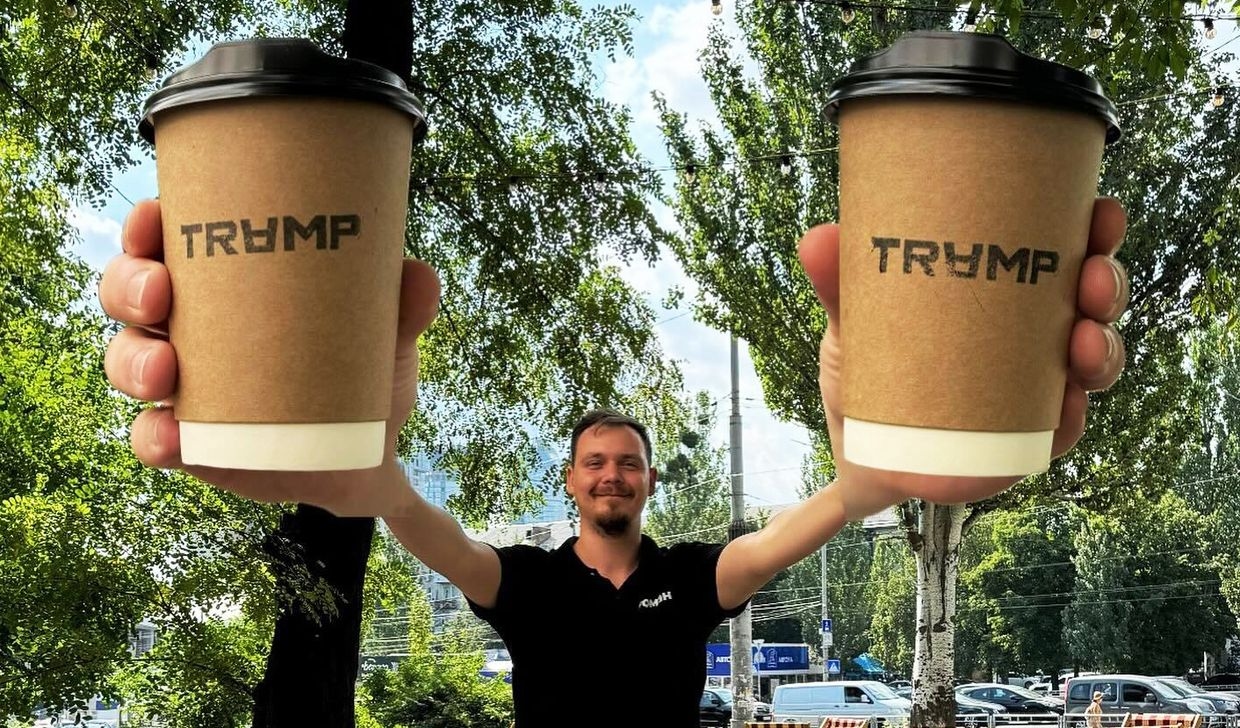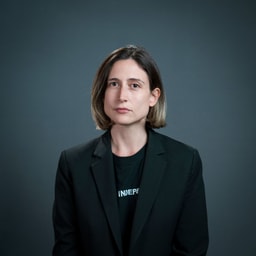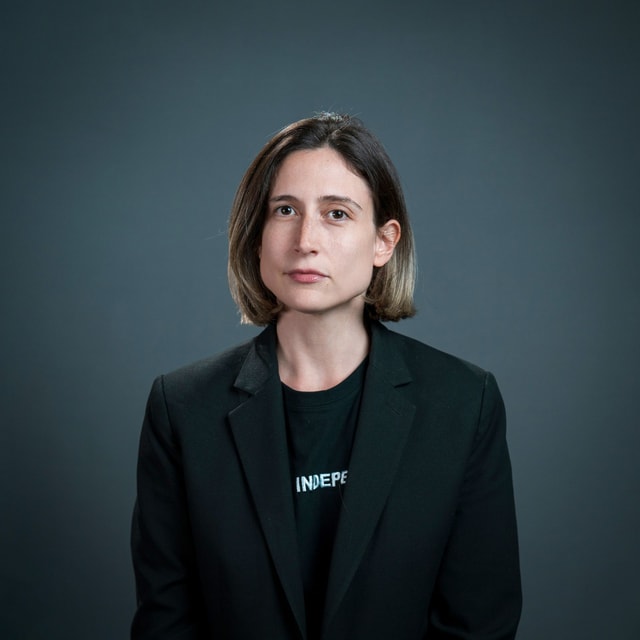Ukraine Business Roundup — More wartime M&A deals

The following is the March 25, 2025 edition of our Ukraine Business Roundup weekly newsletter. To get the biggest news in business and tech from Ukraine directly in your inbox, subscribe here.
Ukraine’s largest telecom operator, Kyivstar, signed an agreement to acquire Uklon, a leading ride-hailing and delivery platform in the country, for $155.2 million, Kyistar’s parent company Veon announced last week.
Forbes Ukraine first valued the deal somewhere between $40–80 million. Then, earlier this month, a little-known Ukrainian media outlet called Scroll reported, citing its unnamed sources, that the deal was closer to $100 million.
It’s not entirely clear why the deal’s value was so much more than anyone thought. One of Forbes Ukraine’s undisclosed sources said there was another interested buyer. Another said it might be that the price tag reflects the future value a deal like this will bring to Veon.
The deal is also one of the biggest M&A deals in Ukraine in the past three years, in third place behind French billionaire Xavier Niel’s purchase of Ukraine’s third-largest mobile operator Lifecell for $500 million and investment group Horizon Capital’s acquisition of tech company Creatio for $200 million, both in 2024.
Putting a deal like this into context, Ukraine’s business giants have accumulated a lot of capital since the start of the full-scale invasion, unable to take it out of the country due to capital controls the central bank very wisely put in place on day one of the invasion.
Unable to get their money out, companies have reinvested it domestically. Given the ongoing war, even domestic investors are staying away from any physical assets, instead going for acquisitions of already established players on the market that don’t require any, or much, CapEx.
Kyivstar — which has 24 million customers in Ukraine — has been actively expanding its portfolio since 2022, when it acquired a majority stake in medical tech platform Helsi. It’s also reportedly looking to acquire Tabletki, another online health platform for ordering prescription drugs.
In December, the mobile operator also announced a deal with Elon Musk's SpaceX for Ukraine to become one of the first countries with access to Starlink's direct-to-cell service. This deal is for cell service and is separate from the widespread use of the satellites for internet connection on the battlefield.
Now, with Uklon, arguably the most popular ride-hailing service in Ukraine (alongside Estonian ride-hailing company Bolt), under its belt, popular e-health services, the largest database of mobile customers, and a parent company that operates globally, Kyivstar clearly has ambitions for post-war expansion. It’s also set up to be the first Ukrainian company ever to be listed on the Nasdaq this fall.
Veon on March 18 announced it had agreed to a deal with special purpose acquisition company Cohen Circle to list Kyivstar on Nasdaq under the ticker Kyiv. The transaction is awaiting shareholder approval and is expected to close in Q3 2025.
Uklon operates in 27 cities across Ukraine, has over 100,000 drivers, and has facilitated 100 million rides and 3 million deliveries in 2024. In 2023, it entered Uzbekistan, where Veon’s subsidiary, Beeline Uzbekistan is a key player.
Veon Group CEO Kaan Terzioglu said in a press release announcing the deal that the company sees potential for Uklon’s expansion beyond Ukraine and Uzbekistan, with plans to support its growth in Kazakhstan, Pakistan, and Bangladesh through Veon’s digital operators. Uklon faced issues expanding in the past and was forced to withdraw from the Georgian, Moldovan, and Azeri markets.
The deal is now going through customary closing conditions and approvals, Veon said in its press release. Undisclosed sources told Forbes Ukraine the deal could close in early April.
Minerals deal: Where is it?
After nearly a month of the U.S.-Ukraine minerals deal being up in the air after the Oval Office showdown, U.S. President Donald Trump said that he expects the deal to be “signed soon,” Reuters reported on March 24.
Since the deal got derailed, Trump has apparently now also set his sights on U.S. ownership of Ukraine’s power plants, particularly its nuclear power plants, including the currently Russian-occupied Zaporizhzhia power plant. (This idea was reportedly presented to Trump by the Ukrainian side itself, likely as a way to encourage Trump to help Kyiv get the plant back in negotiations.)
"We're talking about territory right now. We're talking about lines of demarcation, talking about power, power plant ownership. Some people are saying the United States should own the power plant...because we have the expertise," he said, Reuters reported.

Business is back
In one uplifting business story from this week, the Faktor Druk printing house in Kharkiv, heavily damaged by a Russian missile attack in 2024, has been fully restored, Economy Minister Yulia Svyrydenko said late last week.
Russian forces struck the printing facility on May 23, killing seven people and injuring 21. The attack destroyed more than 50,000 books and vital printing equipment. Faktor Druk is part of the Faktor Group, which includes Vivat, Ukraine's third-largest publishing house. The company is also one of the largest full-cycle printing complexes in Europe.
The restoration of the facility was financed by the Howard G. Buffett Foundation, which stepped in following the attack to help rebuild.
Air travel: is unlikely anytime soon
Remember all those reports in recent months that Ukraine’s airports were basically “ready to go” and could be up and running at the start of this year, and all those airlines that said they were ready to jump in to resume air travel as soon as the situation allowed for it?
Well, if, like me, you were a bit suspicious the security situation would allow for any air travel any time soon, it appears Ukraine's airports and its government feel the same way. This has one airline CEO pretty annoyed, it seems.
Ryanair's proposals to set the stage for the resumption of commercial flights in Ukraine after the skies reopen have been met with "radio silence" for two years, the airline's CEO, Michael O'Leary, said on March 25. The restart of flights is vital for rebuilding Ukraine's economy, a process that cannot start unless "somebody gives the airports a kick up the backside," O'Leary said.

Business is changing
In another business story from over the past week — perhaps uplifting for some, not so much for others — a cafe in Kyiv dropped “Trump” from its name as Ukrainians grow increasingly frustrated with U.S. President Donald Trump's stance toward Ukraine in negotiations.
Located in the capital's central Pechersk district, the establishment was opened in 2019 and, in January of this year celebrated Trump's inauguration with a special "Trump sour" cocktail. During the elections, Trump’s repeated statements that he would end the war quickly had given some in Ukraine hope that he’d actually be the person to finally do it.
It was an apt name in hindsight, as since then, things have only soured further — the now infamous Oval Office showdown, the subsequent halting of U.S. military aid and intelligence, and the White House's wooing of Russia have left many Ukrainians disillusioned with Trump's efforts to end Moscow's full-scale invasion.
"I pass by this place every morning, and the name always triggers me," 22-year-old local Daryna Zdzeba told the Kyiv Independent’s business reporter Yana Prots outside the cafe.
Roman Kravtsov, creative director of Nolan, the cafe’s new name, admired Trump as a businessman and had hoped his policies after taking office for the second time would favor Ukraine.
But in light of recent events, it was decided the name had to go. "I don't want to dwell on the past," he told the Kyiv Independent. He’s also removed a pizza at another establishment he helps run that was called the "Trumpino."
Read the full article here.
What else is in the news
Russia, Ukraine agree to eliminate 'use of force' in Black Sea, halt on energy strikes
The U.S., Russia, and Ukraine have agreed to "eliminate the use of force" and prevent the use of commercial vessels for military purposes in the Black Sea following two-day talks in Saudi Arabia, the White House said on March 25. The two sides also agreed to implement a complete ban on energy infrastructure strikes, Defense Minister Rustem Umerov said. But according to the Kremlin, however, the ceasefire in the Black Sea would only come into effect once some sanctions were lifted.
Denmark pledges $140 million to companies investing in Ukraine's defense sector
Under the new initiative, the Danish government will introduce a state-backed guarantee through the Export and Investment Fund of Denmark (EIFO). The guarantee covers up to 70% of Danish companies' investments in Ukraine's defense sector, amounting to 1 billion Danish kroner ($140.6 million). The Nordic country has spearheaded efforts to provide military support to Ukraine by investing in its defense industry, creating the so-called "Danish model" of purchasing arms for Kyiv from Ukrainian producers.
EU considers cutting Ukrainian sugar imports after price drop, Reuters reports
The European Commission is contemplating significant cuts to Ukrainian sugar imports after complaints from EU producers about plummeting sugar prices, Reuters reported on March 20, citing information from three sources. EU Agriculture Commissioner Christophe Hansen told French farm union leaders and industry representatives at the Paris farm show in February that he intends to reduce Ukraine's sugar imports to levels "well below" current volumes, according to Reuters.
DTEK receives 11-million-euro grant from the French government to build Ukraine’s first digital substation
DTEK, Ukraine’s largest private energy company, has received an 11 million euro ($11.8 million) grant from the French government to build Ukraine’s first digital substation, DTEK said in a press release on March 25. The project will be delivered using technology from GE Vernova and cost 15 million euros, funded with 11 million euros in French government grant financing and a 4-million-euro ($4.3 million) investment from DTEK. The new substation will be able to supply power to more than 65,000 homes and businesses, DTEK said.









